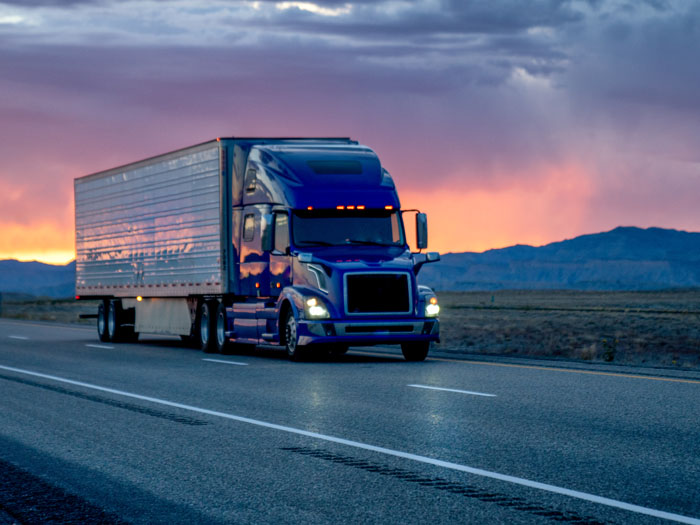Your Fleet’s ELD Data Can Be Used Against You. How to Make Sure That Doesn’t Happen

Electronic logging devices — or ELDs — are tracking devices installed on commercial vehicles. They’re mandated by the federal government as a way to improve road safety, but in litigation cases, they can become a liability.
So, how can fleet operators mitigate and resolve these issues while keeping drivers safe on the job?
How ELD Data Is Leveraged in Litigation
Electronic logging devices for trucks are required by the U.S. Federal Motor Carrier Safety Administration (FMCSA) to accurately track hours of service and driver behaviors. Using an ELD logbook instead of a traditional paper version has various benefits, especially the more accurate record-keeping of drivers’ service hours. ELD data can also be used to manage fleets more efficiently and even to monitor its vehicles’ health.
Unfortunately, ELD data has become a liability for trucking companies in litigation cases.
Attorneys use claims of negligence on the part of motor carriers to win lawsuits, even when the company was not responsible for the accident. In fact, drivers are at fault only 20% of the time, but trucking companies ultimately pay for 80% of accidents.
In litigation cases, attorneys will leverage any data on a driver they can get. This makes ELD data a potentially critical liability. If the driver happened to go even one hour over their HOS maximum, the plaintiff’s attorney could use it to win the case.
This turns a technology intended to help trucking companies into a frustrating legal risk.
How can they use ELDs to their advantage and keep drivers safe? There are a few key tactics that can help.
How ELD Logbook Data Can Protect Trucking Companies
Attorneys can only leverage ELD data in their favor when they find driving regulation violations. They may not even be directly related to the accident at hand.
However, trucking and insurance companies can turn this strategy around by using ELD logbooks to ensure their drivers are being safe on the road.
Establish ELD Logbook Rules for Drivers
Establishing ELD logbook rules for drivers is the first step toward mitigating litigation liability.
A key takeaway in this situation is that attorneys are leveraging evidence of nonregulation driving behaviors. Ironically, combating HOS violations and unsafe driving is one of the goals of ELDs. Trucking companies must ensure their drivers understand the seriousness of following regulations and enforce safe driving practices.
Fleet managers can use ELD data to identify drivers who consistently display unsafe habits. Some may be violating regulations unintentionally. A driver might exceed their HOS maximum because they were a little late getting to their overnight stop or because they lost track of time. Fleet operators need to ensure truckers understand that even seemingly small mistakes like this can have serious consequences.
To prevent attorneys from utilizing ELD data in litigation, fleet managers must first use it to improve drivers’ safety on the road. In addition to using ELD logbooks to spot unsafe driving, trucking companies can also use it to reward good drivers and improve training.
Check FMCSA ELD Guidelines
Attorneys may also attempt to use the ELDs themselves against trucking companies. They could argue that a noncompliant ELD is an indicator of negligence on behalf of the motor carrier. Companies and their insurance agents can combat this by following FMCSA ELD guidelines.
FMCSA maintains a detailed database of certified, registered ELDs and compliance requirements. Trucking companies should always check it before investing in new ELDs to ensure the devices are compliant. The guidelines also include helpful resources and FAQs that can clear up many common concerns drivers and fleet managers may have about ELDs.
Software updates are an important part of FMCSA compliance requirements. Manufacturers regularly release updates to improve performance, fix technical issues and improve cybersecurity. Fleet managers should prioritize using the most up-to-date software. This is key for FMCSA compliance but can also protect trucking companies from negligence claims.
Turn ELD Data Into the First Line of Defense
Trucking companies and their insurance partners can use ELD logbooks to recognize and resolve unsafe driver habits, protecting truckers from accusations of negligent driving. Companies can also protect themselves from litigation by keeping up with FMCSA ELD compliance requirements, particularly ELD software updates.
There is one more step trucking companies can take to defend against ELD litigation liability.
Safe drivers and trucking companies that take good care of their teams and ELDs can use logbooks as the first line of defense in court. Data will show that the trucker involved in an accident was driving safely and complying with HOS regulations. In fact, the information can even be used to reconstruct the crash.
The idea here is to use the ELD to provide evidence that will vouch for the driver and the trucking company. This is the same idea behind consumer dashcams: The electronic device monitors and records driver behavior to provide hard evidence of what happened in a crash. The ELD can act as an objective witness of safe driving in court.
Making the Most of Electronic Logging Devices for Trucks
ELDs don’t have to be a hassle or a litigation liability for trucking companies and drivers. They can improve safety and ensure truckers get the rest they need on the job.
Leveraging ELDs to promote and reinforce safe driving practices allows trucking companies to protect themselves from liabilities. They can even use ELD logbook data to their advantage in court, offering an objective record that their drivers are true professionals with safe records. &










